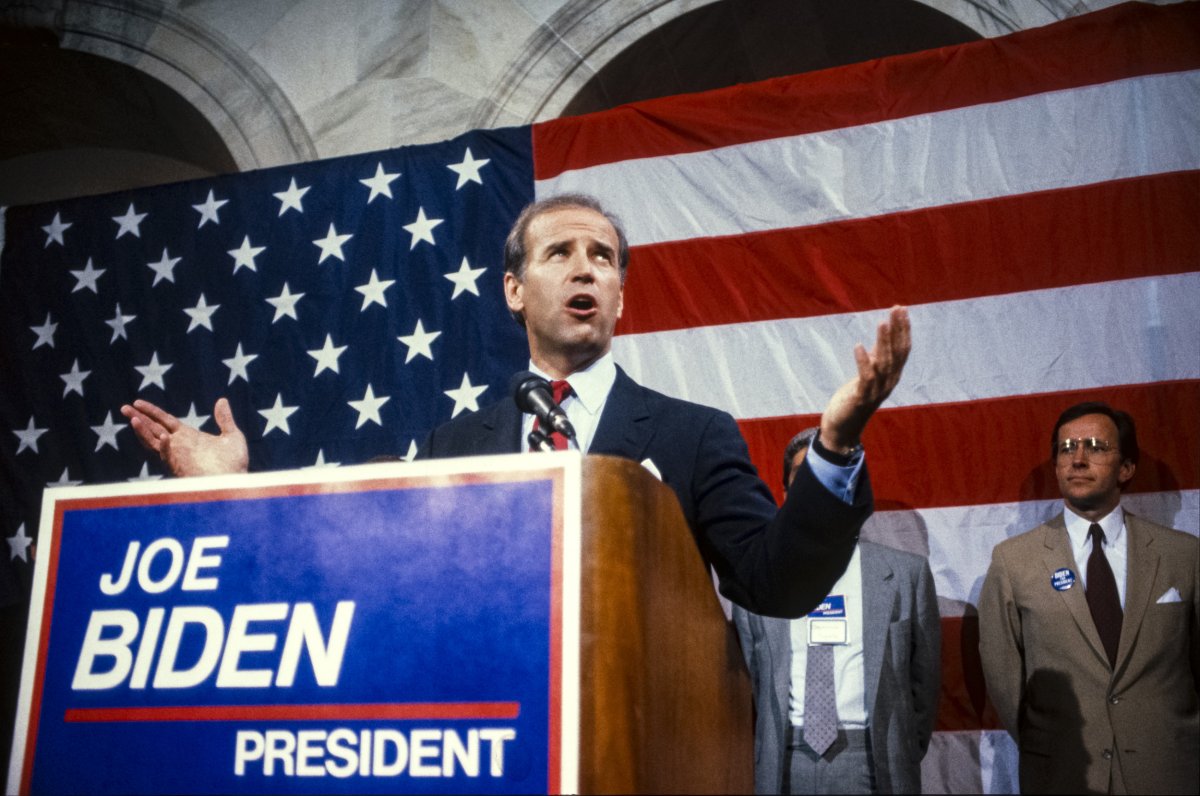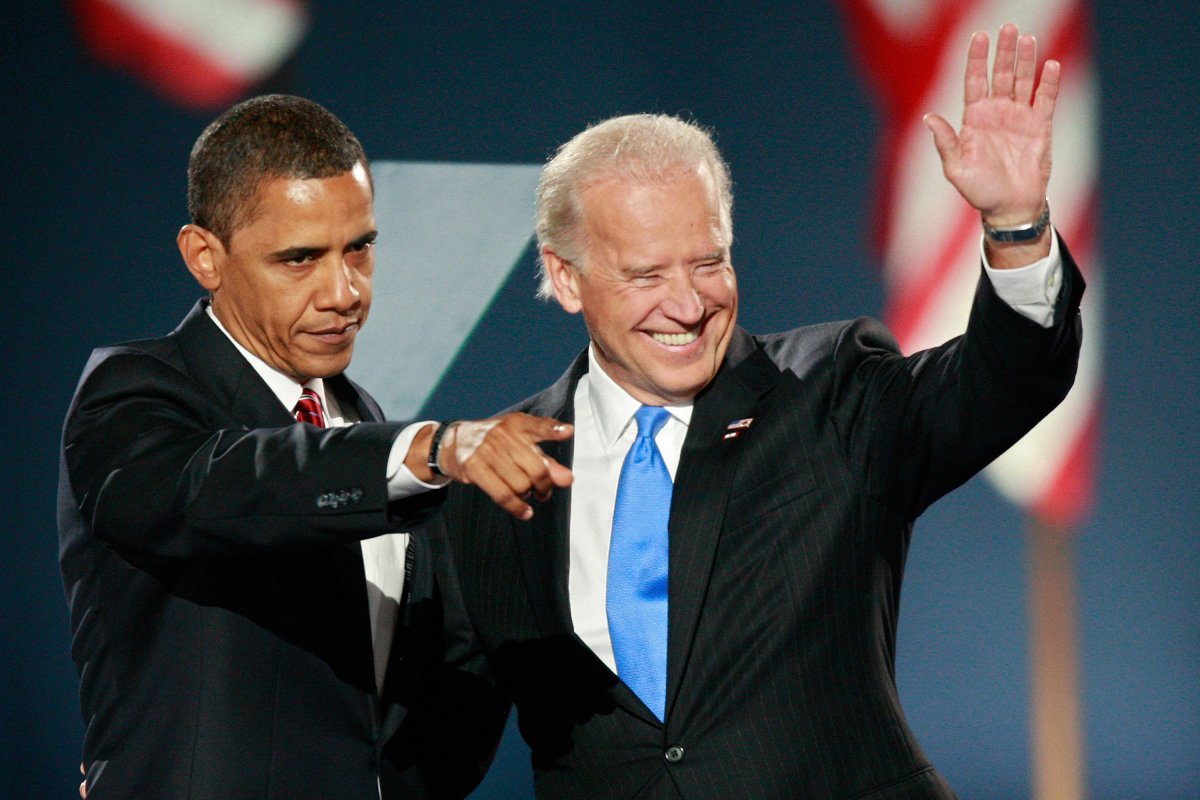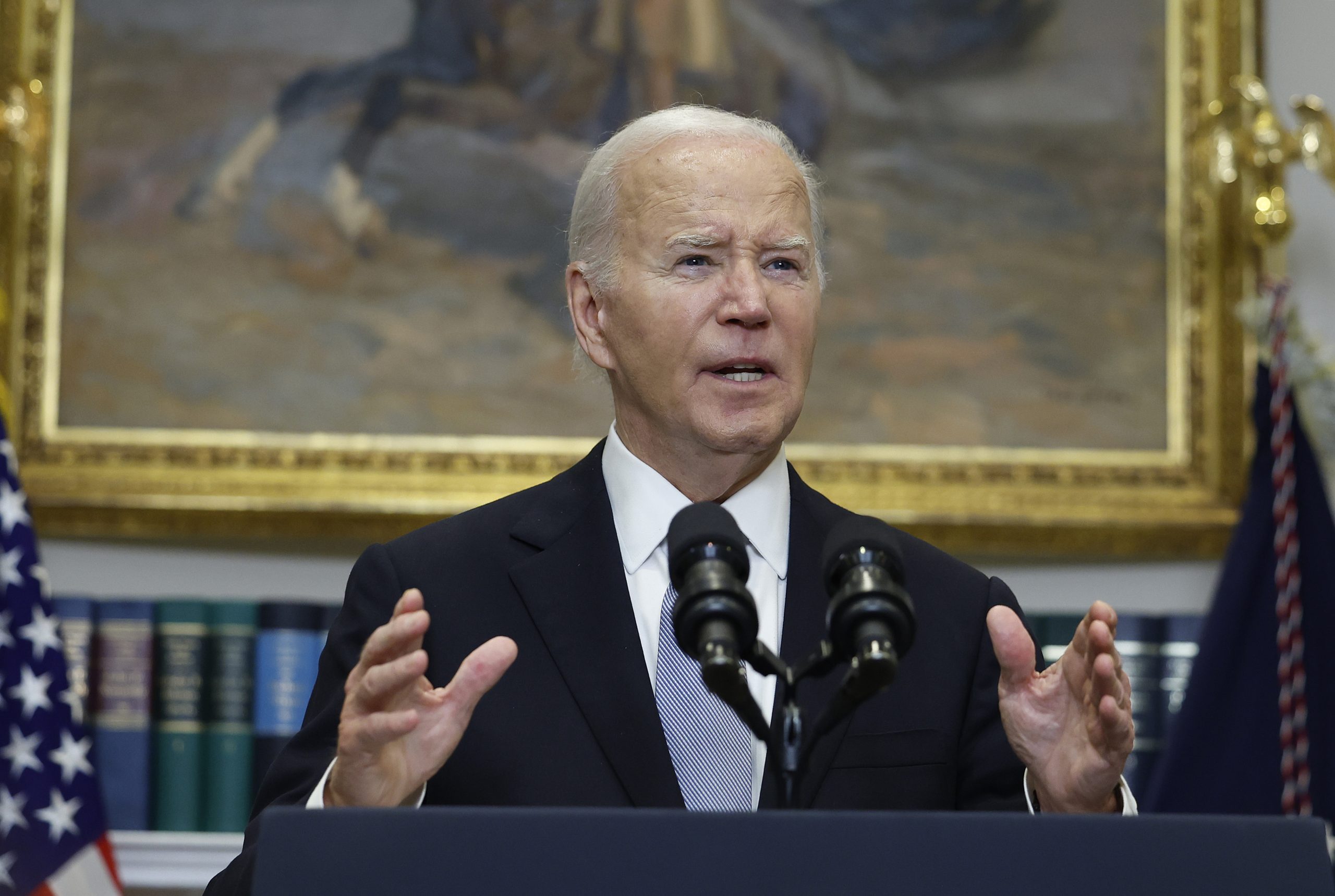President Joe Biden‘s political career has come to an end after more than a half-century of public service.
Biden announced Sunday that he would no longer seek reelection, stepping down as the Democratic nominee TK months before Election Day. His withdrawal from the presidential race concludes his 54 years of public service, ending a political career that included more than three decades in the Senate and three terms in the White House, two as vice president.
Biden’s exit from the race comes after weeks of calls for him to step aside. His poor debate performance against former President Donald Trump on June 27 sparked internal panic among Democrats as members of Biden’s party began speculating if the 81-year-old president was capable of serving a second term.
Kevin Dietsch/Getty
Over the last week, the chorus grew louder. Nearly two-dozen lawmakers publicly called on Biden to withdraw from the race. Even some of Biden’s congressional allies questioned if he should be the nominee.
Biden resisted the pressure for weeks, defiantly insisting that he would remain in the race. But as he comes to terms with his final TK months in office, here’s a look at his political career:
County Council Member
Born November 20, 1942, Biden grew up in a working-class Irish Catholic family. After completing his undergraduate degree at the University of Delaware and graduating from Syracuse University Law School, he worked briefly as a public defender before running for office at age 28.
Biden ran his first political campaign in 1970 and successfully won election to the New Castle County Council in Delaware, where he served for two years before he decided to enter national politics.
U.S. Senator
In 1972, Biden became one of the youngest senators in U.S. history after he defeated Senator J. Caleb Boggs, a popular Republican who had served two terms.
His campaign was a gamble. Only 29 years old at the time of the race, Biden would have to wait until his 30th birthday that November before taking his seat. He also had minimal campaign funds and staffed his campaign with family members who him appeal to Delaware voters. Despite trailing Boggs by almost 30 percentage points in the months leading up to the election, Biden won with 50.5 percent of the vote.
But a few weeks after his victory, tragedy struck the Biden family.
In December 1972, a tractor-trailer drove into the station wagon carrying his wife, Neilia, and three children—Beau, Hunter and Amy. His wife and daughter were killed. Beau, 3, and Hunter, 2, were badly injured. Biden considered resigning after the incident, but his colleagues convinced him not to.
In January 1973, he was sworn in as the seventh-youngest senator in American history. As a freshman senator, he was vocal about his dislike for President Richard Nixon and strongly criticized President Gerald Ford for pardoning Nixon after his resignation. In 1976, Biden became the first senator to endorse Jimmy Carter for president in the Democratic primaries.

Howard L. Sachs/CNP
As senator, he served leadership roles on the Senate Judiciary Committee and the Senate Foreign Relations Committee.
Over his 17 years as chairman or ranking member of the judiciary panel, Biden led the confirmation hearings of five U.S. Supreme Court justices, including the contentious hearings for Robert Bork and Clarence Thomas, and played a significant role in passing the Violent Crime Control and Law Enforcement Act of 1994 and the Anti-Drug Abuse Act of 1986.
He also acted as the chairman or ranking member of the foreign policy committee for 11 years, during which he supported NATO expansion and pushed for U.S. military intervention in the Balkans. He initially supported the Iraq War but later became a critic of the Bush administration’s handling of the war.
Over six consecutive terms as senator, Biden served a total of 36 years in the Senate.
Vice Presidency
Biden had always had sights on higher office. He ran for the Democratic presidential nomination in 1988 and 2008 but did not win either time, even though he had been thought to be a strong candidate with a moderate image.
In August 2008, however, Biden had a shot of going to the White House after Barack Obama chose the Delaware Democrat as his running mate. When approached, he laid out a very specific idea of how he wanted to shape his vice presidency, acting as a chief counselor to the president and being consulted on every crucial decision.
Biden became the 47th vice president of the U.S. in January 2009.
During his vice presidency, he focused on economic recovery after the 2008 financial crisis, foreign policy and domestic issues. Biden also helped Obama wrangle enough congressional votes to pass the Affordable Care Act, one of the most significant and defining achievements of Obama’s presidency.

Scott Olson/Getty
Biden served alongside Obama in the White House for two terms. Obama surprised his vice president in January 2017 by awarding him the Medal of Freedom in the final days of the administration.
Presidency
Biden launched his third White House bid in April 2019, just two years after leaving as vice president.
His 2020 campaign began with a rocky start. Biden saw disappointing results in the first primaries of the cycle in Iowa and New Hampshire, and it wasn’t until the February primary in South Carolina that he won decisively and emerged as the likely Democratic nominee.
Biden was in a tight race against Bernie Sanders until the Vermont senator suspended his campaign in April 2020. Biden formally accepted the Democratic nomination at the convention in August 2020, days after announcing Kamala Harris as his running mate.
In November, Biden defeated President Donald Trump in a controversial race that led to the January 6, 2021, Capitol riot.

Patrick Semansky/Getty
Inaugurated in January 2021, Biden’s presidency began in the shadow of the COVID-19 pandemic, economic instability and deep political polarization. Initially, he focused on COVID, rolling out a nationwide vaccination campaign and passing the American Rescue Plan. He also signed other major pieces of economic legislation, including the Infrastructure Investment and Jobs Act, the Chips and Science Act and the Inflation Reduction Act.
On the international front, he faced a number of difficult foreign policy issues, like Russia’s invasion of Ukraine on February 24, 2022, and the Israel-Hamas war that began on October 7, 2023. Biden also ordered the U.S. withdrawal from Afghanistan in 2021—a decision that would send his approval rating underwater for the rest of his presidency.
Final Days
Despite the criticism Biden faced over the last month, he remained resilient against the calls for him to suspend his campaign.
In a nationally broadcast interview in July, Biden threw down the gauntlet to his critics, telling them: “Go ahead. Challenge me at the convention.” He also wrote a letter to congressional Democrats ensuring them that “I wouldn’t be running again if I did not absolutely believe I was the best person to beat Donald Trump in 2024.”
But even after an attempted assassination on his Republican opponent on July 13, Biden’s age and mental fitness remained at the forefront of the conversation. Yet he remained determined to win reelection, telling BET in an interview on July 16 that the only thing that would cause him to reconsider his candidacy would be a “medical condition.”
A day later, the White House announced that Biden had tested positive for COVID, a diagnosis that would take him off the campaign trail at a critical moment in the race.
Four days later, Biden announced he would leave the race.
Uncommon Knowledge
Newsweek is committed to challenging conventional wisdom and finding connections in the search for common ground.
Newsweek is committed to challenging conventional wisdom and finding connections in the search for common ground.
